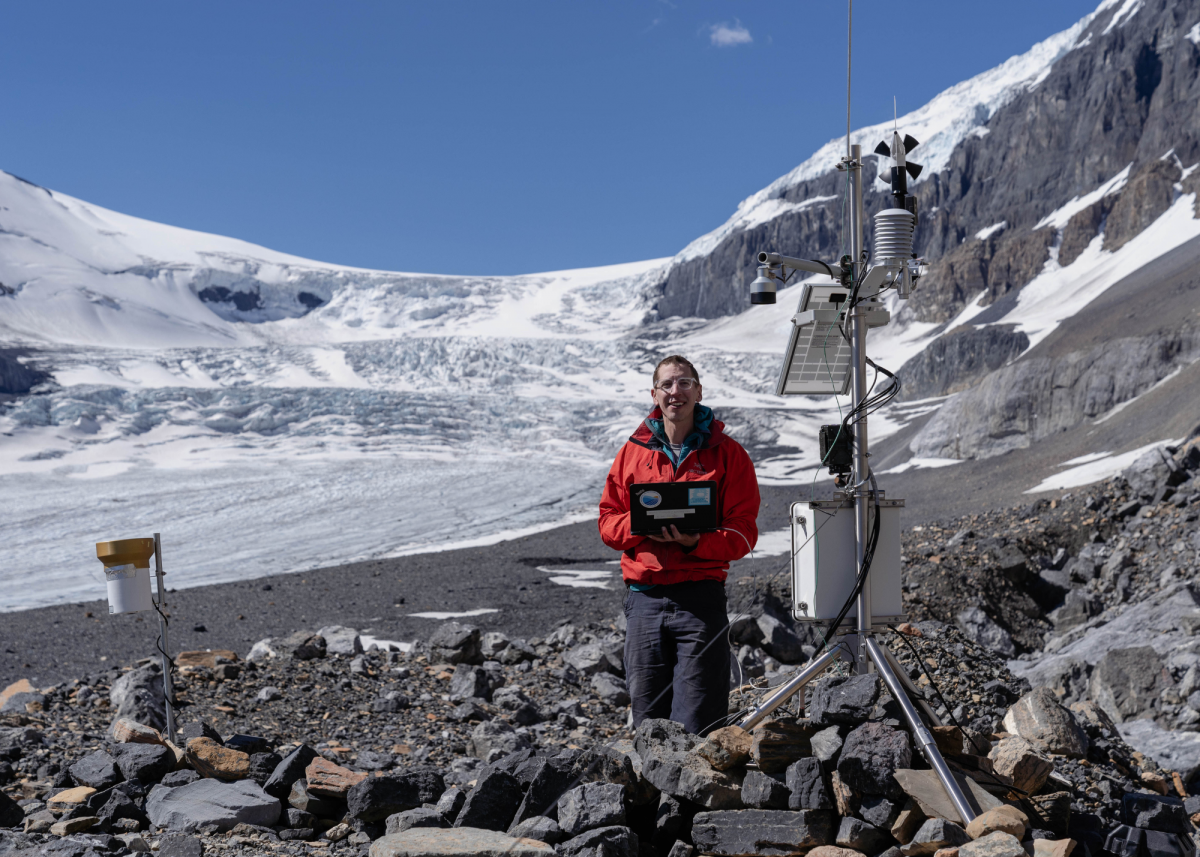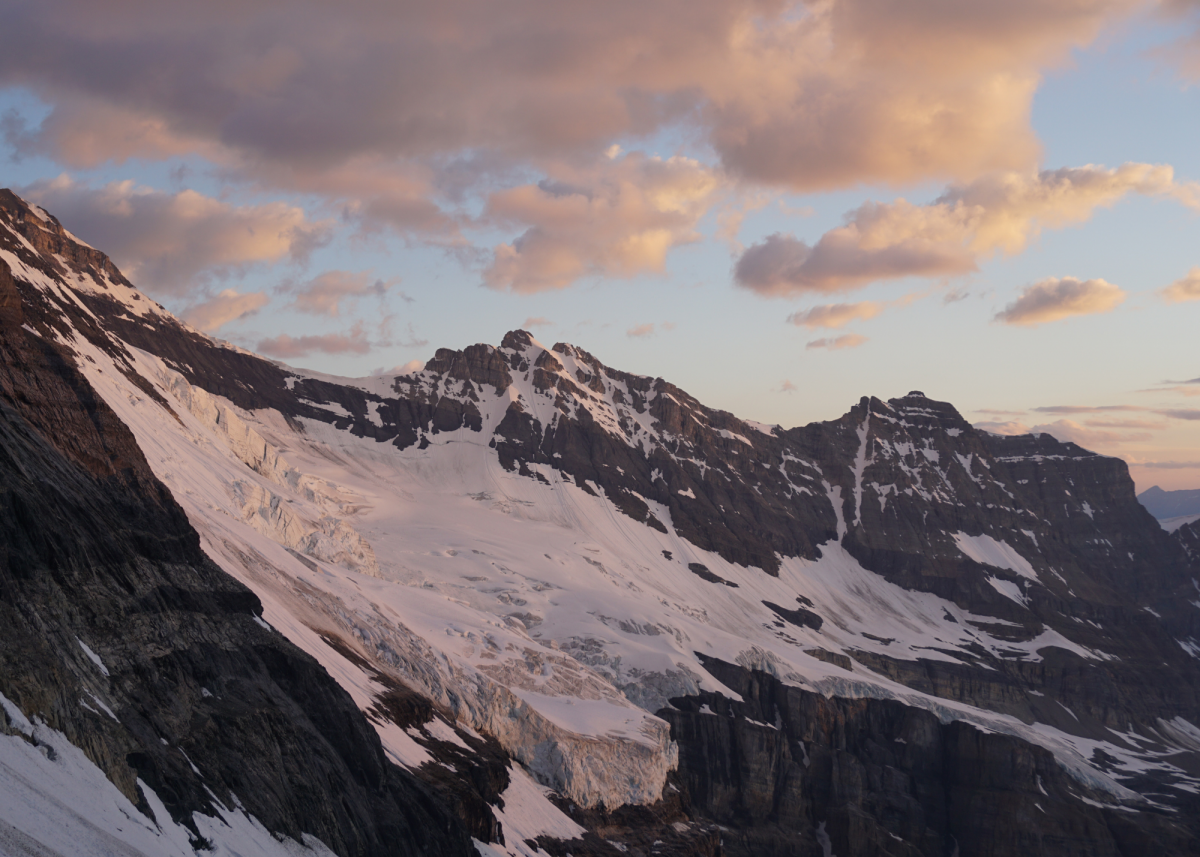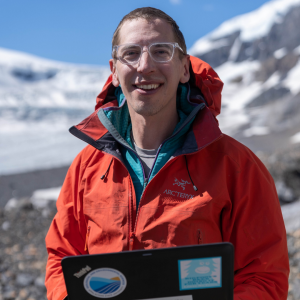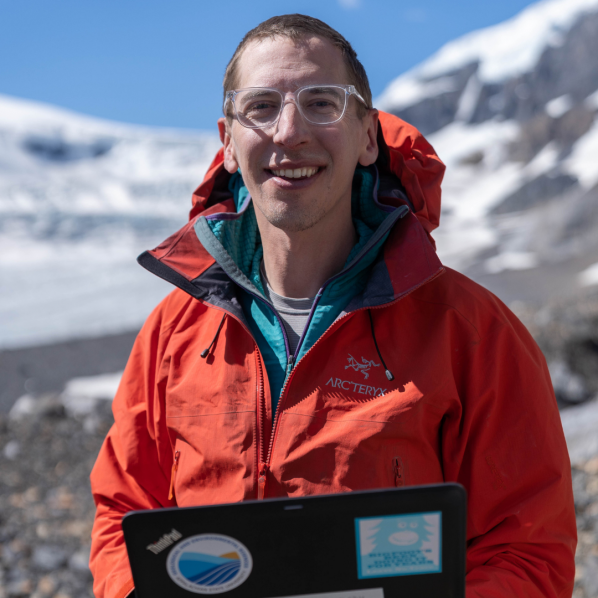BOONE, N.C. — Dr. William Armstrong, assistant professor in Appalachian State University's Department of Geological and Environmental Sciences, is the co-recipient of a National Science Foundation (NSF) Research in Undergraduate Institutions (RUI) Award. Between May 2024 and April 2027, Dr. Armstrong and researchers from the University of Oregon and University of Colorado will receive $941,900 from the Office of Polar Programs (OPP) to support work on their collaborative project, titled "Frontal Ablation Processes on Lake-terminating Glaciers and their Role in Glacier Change." Armstrong's lab will receive $303,391 of the total amount.
NSF RUI awards provide funding for research by faculty members at predominantly undergraduate institutions (PUI), such as App State. The awards support PUI faculty in research that engages them in their professional field, builds capacity for research at their home institution and supports the integration of research and undergraduate education.
"Around the world, lakes in direct contact with glacier ice have grown rapidly over the past decades as glaciers thin and retreat in response to anthropogenic climate change. Glaciers that end in lakes are thinning faster than those that end on land or in the ocean, but it is unclear how much the lakes are a cause or a symptom of rapid glacier wastage," explained Armstrong. "The project will investigate how the formation and growth of a lake at a glacier’s downstream end affect how quickly that glacier melts and retreats."
The team's work will combine a range of oceanographic, glaciologic and sedimentological techniques to characterize how quickly ice is being lost to melt below the waterline and the breaking off of icebergs over the past several decades, focusing on three glaciers near Juneau, AK.
Armstrong explained the importance of the research, writing, "This work is important because we must understand the physical processes driving glacier change if we are to accurately predict the evolution of the world’s glaciers over the coming decades to centuries. Globally, ice melt currently accounts for about half of modern sea level rise. Regionally, glacier change has significant impacts on downstream ecosystems and water resources. Thus, we must understand how glaciers will change to best manage associated repercussions and build a society that is more resilient to climate change."

Armstrong servicing a weather station on Athabasca Glacier in Alberta, Canada in 2022. Photo by Zach Montes (Orijin Media)
App State undergraduate students will be involved in every step of the project. Each summer, a student will accompany the team for field research, camping beside a glacier in the Alaska wilderness for weeks at a time. Back in Boone, students will work with satellite and field-collected data to describe how and why these glaciers have changed over time. They will present their work at premier international conferences such as the American Geophysical Union Fall Meeting and have the opportunity to publish their research in peer-reviewed scientific journals.
Armstrong shared that the project seeks to increase representation of underserved groups in the geosciences by supporting students from the Alaska Native Science and Engineering Program to attend the field-based Juneau Icefield Research Program, as well as by developing technical computing workshops for undergraduate students.
"Undertaking such work exposes students to a range of cutting-edge techniques and makes them excellent candidates for graduate school or the geoscience workforce," said Armstrong.
About Dr. William Armstrong
Armstrong earned his bachelor's degree in environmental geoscience from Boston College and his doctoral degree in geological sciences from the University of Colorado at Boulder. Following the completion of his doctorate, Armstrong joined App State's Department of Geological and Environmental Sciences as a visiting assistant professor in August 2017 and was promoted to assistant professor in 2019. At App State, Armstrong has taught a variety of courses in the department's quantitative geoscience, environmental geology and earth system science tracks, including Quantifying Environmental Change, Applied Methods in Environmental Science, Engineering Geology and Preparation for Careers in Earth and Environmental Science.
Armstrong's research investigates earth surface dynamics, including the behavior of glaciers and rivers, using satellite remote sensing, field study and numerical modeling. In 2018, Armstrong and a co-investigator from the University of Alaska Fairbanks received a five-year NSF RUI award totaling $700,874 to support a study of the Athabasca Glacier in Alberta, Canada, titled "A Half Century of Changing Glacier Dynamics at Athabasca Glacier.” Initial findings of this work have been published in the Journal of Geophysical Research.

The Victoria Glacier, near Lake Louise, Alberta, at sunrise. Photo by Armstrong
###
About the Department of Geological and Environmental Sciences
Located in Western North Carolina, Appalachian State University provides the perfect setting to study geological and environmental sciences. The Department of Geological and Environmental Sciences provides students with a solid foundation on which to prepare for graduate school or build successful careers as scientists, consultants and secondary education teachers. The department offers six degree options in geology and two degree options in environmental science. Learn more at https://earth.appstate.edu.
Written by Lauren Gibbs & Dr. William Armstrong
June 6, 2024
BOONE, N.C.

